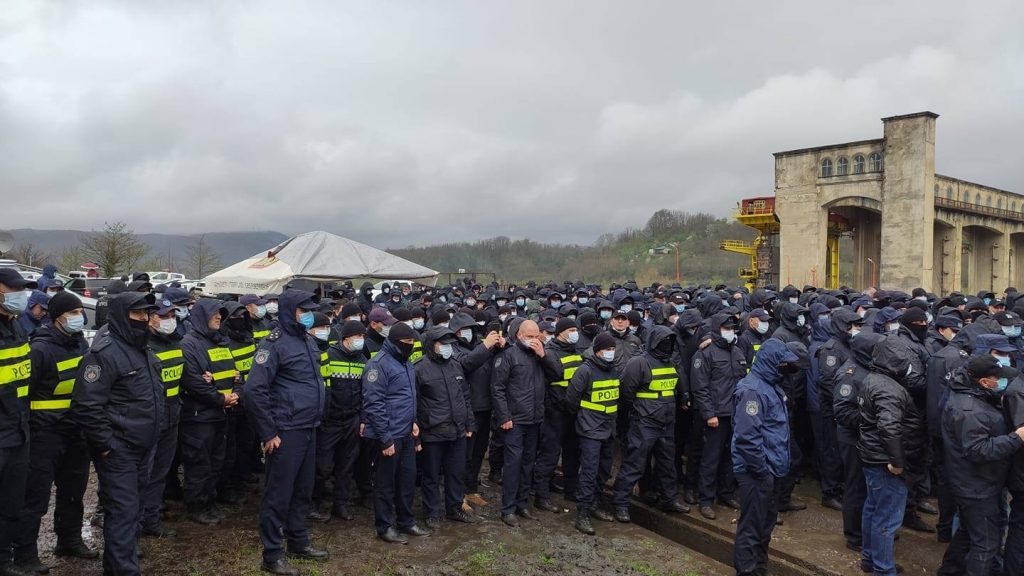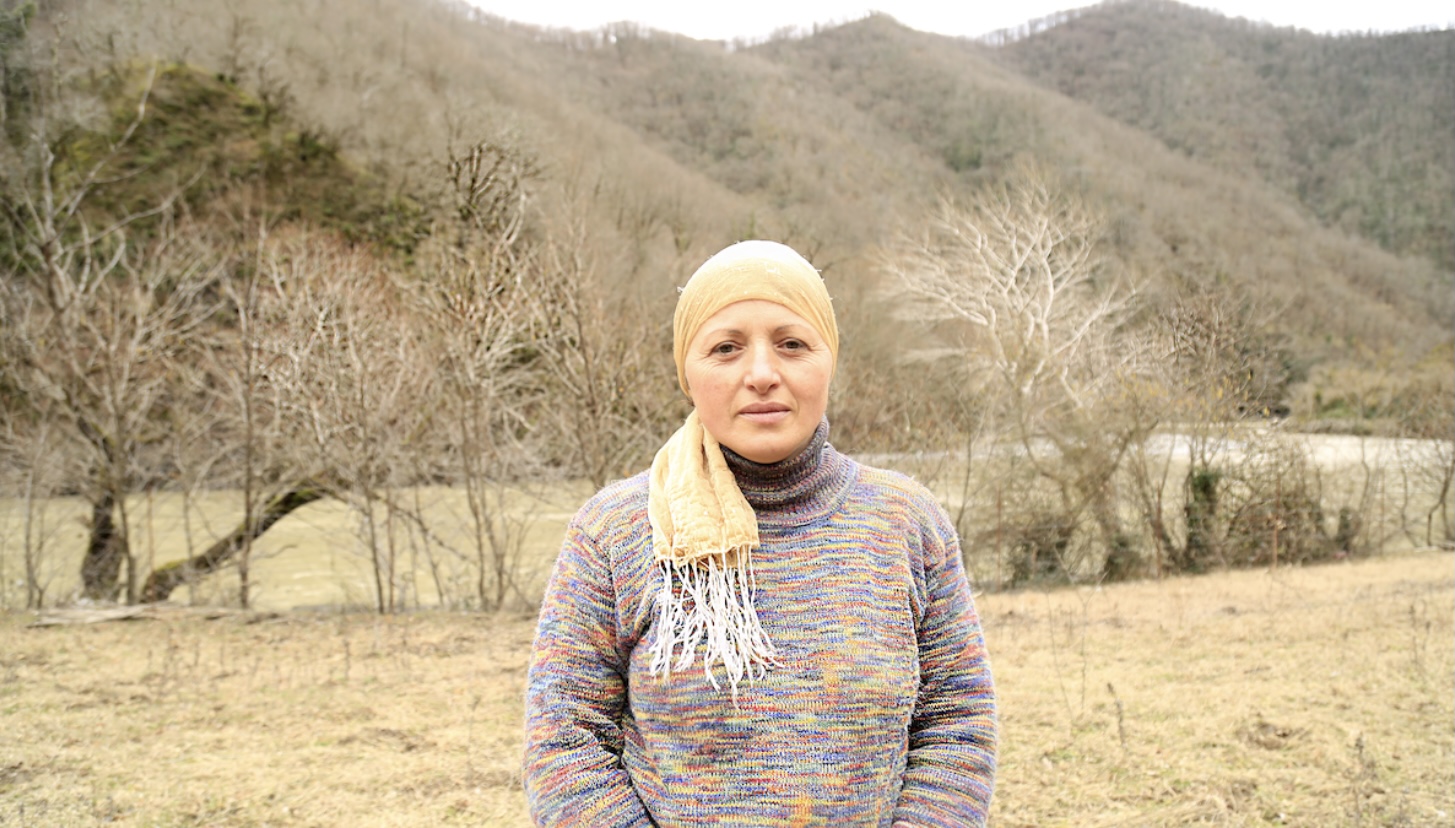Protests against construction of HPP in Western Georgia continue
Protests against the construction of the Namakhvani HPP in Georgia
Police did not allow residents of the residents of Rioni Gorge, western Georgia to continue protesting against the construction of the Namakhvani hydroelectric power plant station, despite the recent clashes with activists. Access to the area where protesters set up their tents and where most of the protests took place was blocked by construction equipment and tractors.

The construction of the HPP in the Rioni Gorge is being carried out by one of the largest companies in Turkey, ENKA, and the project is supported by the government of Georgia. The construction of the Namakhvani HPP is the largest energy project in Georgia since the country gained independence after the collapse of the Soviet Union. The only other project of a similar scale was the construction of the Enguri hydroelectric power plant during the Soviet era.
The government authorities justify the construction of the Namakhvani HPP by saying that it will provide Georgia with energy independence.
However, opponents of the project, supported by many environmentalists, claim that the construction of the HPP in Rioni Gorge will lead to serious environmental and seismic risks. On top of that, the construction of the hydroelectric power plant will require the relocation of dozens of families.
The situation in the Namakhvani Gorge has worsened since April 11, after law enforcement officers dismantled the tents that had been set up by the protesters. The police claimed that their actions were caused by the high risks of flooding the Rioni River. The protesters said that the site of the protest is private property owned by one of the activists. However, representatives of the construction company claim the opposite.
The organizers of the rally consider the restrictions implemented by the local police against the protesters illegal.
Maka Suladze, the protector of the Rioni Gorge, addresses the police. Video: “Batumelebi”
Driven away from the construction site of the hydroelectric power station, on April 12 the protesters moved to Kutaisi, the second-largest city in Georgia, located a few kilometers away from Namakhvani Gorge, to hold a protest near the ENKA office.
Minister of Economy and Sustainable Development Natia Turnava said that a large meeting will be held in the coming days, to which non-governmental organizations, scientists, and experts will be invited: “everyone who is interested and can make a constructive contribution to the existing research around the construction of the Namakhvani hydroelectric power station is invited to join the meeting”.
The Interior Ministry calls on the protesters not to go beyond the freedom of speech outlined in the country’s law and warns that it will respond to any illegal actions.
Timeline and background of the protest
Protests against the construction project of the Namakhvani hydroelectric power plant have been going on for more than four months. Activists believe the hydroelectric plant will flood the valley completely and threaten the existence of 18 villages. That is why the locals call the project “the dam of death”.
In addition, the dam will be located just a few kilometers away from the second-largest city in Georgia, Kutaisi. If the dam is ever damaged, a 34-meter wave will reach the city in just 19 minutes.
At the end of October 2020, local residents and civil activists set up tents in the village of Joneti, Tskhaltubinsk municipality. They asked ENKA to stop the construction immediately and remove the equipment from the gorge.
A film about the confrontation and the dam filmed Georgian journalist Elene Asatiani exclusively for JAMnews .



















